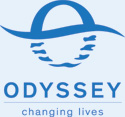Stigma contributes towards social exclusion, hinders social reintegration for those in recovery, creates psychological distress and is a significant barrier to treatment-seeking for people experiencing AOD problems, and their families.
As part of its work to understand the AOD treatment space better, the AOD Provider Collaborative wanted to know more about local experiences of stigma.
To do this, we needed to identify current approaches to addressing structural stigma for AOD services users and their families/whānau: we ran three focus groups (clinicians / peers and consumers / Pacific families) to understand local experiences of structural stigma.
At the same time, we reviewed literature to identify current approaches and understand the phenomenon better.
KEY FINDINGS
- Service location and names can be intentionally stigmatising:
“Names with negative words in them like detox or dependence indicate that something is wrong with the person, they are stuck, diagnosed, helpless, labelled, boxed, dangerous, unpredictable, and incompetent.”
- Health professionals, employers and media are important target groups to assist with promoting de-stigmatisation messages:
“People use loaded words that you don’t identify yourself with.”
- Attitudes and beliefs of staff are experienced as stigmatising by service users; first contact staff in AOD services should be offered de-stigmatisation training as a priority:
“I feel like a problem to be solved.”
- There are few positive stories in the public sphere about AOD users’ journeys and recovery to help de-stigmatise attitudes:
“Language conveys so much stigma.”
NEXT STEPS
- Support AOD treatment providers to address stigma within service delivery
- Prioritise de-stigmatisation training to first contact staff
- Pilot an education programme with a target group (such as the media or employers) to reduce stigma
- Generate and promote positive stories of recovery, led by service users, families/whānau and DRIVE (formerly the AOD Consumer Network).
“Body language tells me they’ve already judged me before the session has started.”
Download 'Reducing Stigma towards AOD service users' (June 2014).
Useful Links
Reducing stigma towards AOD service users (Final report June 2014, PDF)


